US drone strikes cause political strains in Yemen
Yemenis feel their country's sovereignty is being violated, and the President is a board of directors governed by US.
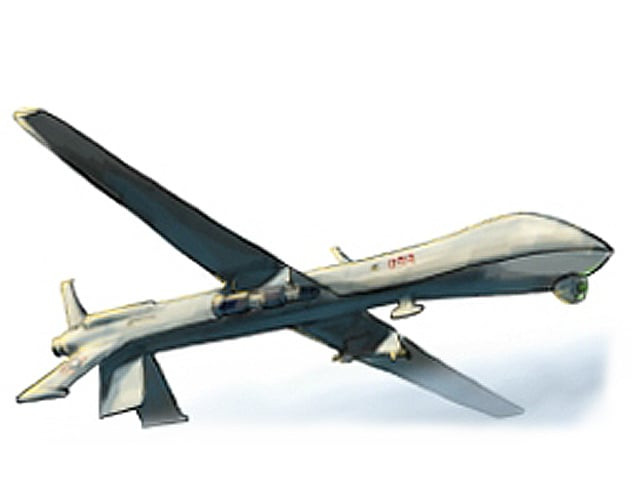
This week alone, US officials said they had seized a bomb that was to have been used by Yemen-based militants to attack an airliner, two al Qaeda men were killed in an apparently related drone strike, and Islamist fighters killed at least 32 Yemeni soldiers when they assaulted an army post in the south.
Saleh's former deputy, Abd-Rabbu Mansour Hadi, who replaced him as president under an internationally-backed, but still shaky, political transition deal, faces a tough dilemma.
He must meet the challenge from emboldened Islamist militants who have exploited more than a year of mayhem to seize and hold towns for the first time, and cannot afford to alienate the United States, one of Yemen's main allies, as it combats what it views as al Qaeda's potentially deadliest wing.
Yet US drone attacks, which have often killed civilians in the past, are resented by Yemenis, even the many who abhor al Qaeda. Suspicions that feuding generals and politicians, from Saleh down, are not averse to using the militants to advance their own ends also complicate efforts to combat them.
The violence has spiraled since Hadi took power in February vowing to fight al Qaeda's foothold in Yemen, a desperately poor, water-stressed country mired in multiple conflicts exacerbated by decades of corruption and misrule.
"The real war against al Qaeda has yet to begin and it will not succeed until we eradicate the militants from every town," Hadi said on Saturday. "Terrorist groups should surrender their weapons and relinquish ideology that counters Islamic virtue."
The al Qaeda-linked Ansar al-Sharia group said Monday's storming of an army position was their retort to Hadi's remarks.
A US official familiar with counter-terrorism activities in Yemen said drone strikes and other operations had increased after the turmoil of Saleh's final months in office - when internal strife distracted Yemeni security forces and cooperation with a once-valued ally disintegrated.
"We pulled back on targeting for a while but (US operations) have got some new momentum now," the official said, adding that it had also become easier to get personnel and equipment into Yemen for the covert struggle against al Qaeda.
Al Qaeda has long bedeviled Yemen and its neighbor Saudi Arabia, the world's top oil exporter, but last year's anti-Saleh uprising emboldened militants to rout demoralised, ill-equipped army units and grab whole swathes of southern provinces.
Washington's alarm has grown in recent weeks as militants killed more than 200 Yemeni soldiers and captured dozens more in a series of spectacular attacks in Shabwa and Abyan provinces, where it now controls the cities of Zinjibar, Jaar, Shaqra and Azzan and has turned them into "Islamic emirates".
Government Misgivings
But some Yemeni officials fret that more US missile strikes will backfire, increasing hostility to a central government that risks being seen as a tool of Washington.
A senior Defence Ministry official, who asked not to be named, said the government feared what he called a "free-for-all" drone program like the one in Pakistan and had insisted on "tough limitations" to ensure that joint US-Yemeni efforts remain firmly in the hands of the Yemeni authorities.
"The Yemeni armed forces remain the sole determinant of all military operations within its borders. We have the final word on all proposed air strikes, regardless of US intelligence. No strikes will take place without our prior consent," he said.
Yemenis still recall a 2009 US cruise missile attack that killed dozens of people, including 14 women and 21 children.
Last year, with the anti-Saleh revolt in full swing, a drone strike killed Anwar al-Awlaki, a US-born Yemeni cleric and English-language al Qaeda propagandist said to have inspired several attacks on targets in the United States.
Hadi, who discussed the fight against al Qaeda with FBI chief Robert Mueller in Sanaa last month, has offered repeated assurances to Washington about military cooperation.
But US strikes and the fractured Yemeni military have failed to quell a burgeoning Islamist insurgency in the south that is sapping Yemen's efforts to build a new political order.
Al Qaeda in the Arabian Peninsula (AQAP), which includes Saudi militants who fled to Yemen after the kingdom crushed a violent home-grown 2003-2006 campaign, is riding high.
Its Ansar al-Sharia ally has gone on the offensive in the south in the last two months, storming military bases, plundering ammunition depots, carving out new strongholds and sending teams to launch attacks elsewhere.
On May 1, two Yemenis were killed and a Frenchman was wounded when suspected al Qaeda gunmen ambushed a vehicle carrying employees of France's Total in an eastern province. Militants blew up Total's gas pipeline the week before, in the third attack on oil and gas facilities in the past month.
Ransom Demand
Militants are also known for kidnapping foreigners for ransom.
A Swiss woman, one of two foreign aid workers seized near Hodeidah, hundreds of miles from al Qaeda's southern lairs, is now held in Shabwa province in the south by al Qaeda militants demanding $60 million for her release, Western diplomats say. Its a situation that closely mirrors the al Qaeda m.o. in Pakistan and Afghanistan.
"For the first time al Qaeda controls territory," said one diplomat. "As the United States sees it, unless they are kept on the run, it will only be a matter of time before al Qaeda launches another attack on the West."
Yet global jihad is not the main public concern of Ansar al-Sharia, which has set up de facto administrations in captured towns, providing security and basic services to a region that has long bristled at official neglect and discrimination.
Recent videos published by the group on YouTube show its members in Jaar, renamed "the emirate of Waqar", handing out sacks of grain, rigging up electricity lines and dealing out justice in a makeshift sharia Islamic court.
"When did you last have electricity?" one fighter asks an old man sitting on a rock as his compatriots assemble a pylon behind him. "We've never had electricity," replies the man in disdain.
Ansar al-Sharia has let the Red Cross implement water projects and provide health care to the internally displaced.
But the militants sometimes meet local resistance, as in the town of Lawdar, where residents using arms abandoned by a fleeing army brigade held off a three-day assault this month.
"They (Ansar al-Sharia) arrived after the dawn prayer, they thought it would be easy to take the town, that we would surrender like they did in Zinjibar," said Saeed al-Dhailie, who heads a local committee set up last year during the protests.
"We fought them off with Duskas (Soviet-era heavy machineguns) and rifles. Thousands of youth participated, tribesmen from the surrounding area joined us," Dhailie said.
Drone limitations
Yemeni generals argue that a properly equipped and well-trained standing army, not more aerial bombardments by foreigners, represents the best way of uprooting the insurgents.
"After a year of fighting al Qaeda with outdated Soviet weaponry we welcomed the arrival of US drones to support us in our battle," said Brigadier General Mohammed al-Sawmli, whose Brigade 25 was pinned down for months by Islamic militants last year after Yemeni security forces abandoned Abyan province.
"They can be an effective means of targeting extremely dangerous militants in remote unpopulated areas. But in the end drones cannot win this fight without the Yemeni armed forces," he told Reuters.
Yemeni officials and Western diplomats agree that restructuring the armed forces, one objective of the transition deal, is paramount to winning the fight against extremism.
But reforming the military cuts to the heart of a tense standoff between relatives of Saleh still in senior military and security positions and opponents determined to oust them.
The United States has not openly endorsed the wholesale removal of Saleh relatives, some of whom command elite units funded by Washington for years, prompting some Yemeni suspicions that it still sees them as allies in its fight with al Qaeda.
"Anti-American sentiment is on the rise. Not just in the villages which are being bombarded, but across the entire country, in the cities, in the universities too," said Abdullah al-Faqih, politics professor at Sanaa University.
"People feel as though their country's sovereignty is being violated, that their new president's government is nothing but a board of directors governed by the Americans."


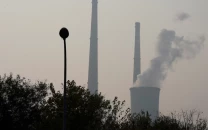

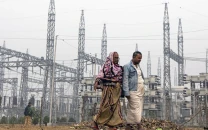
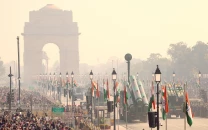
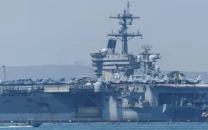











COMMENTS
Comments are moderated and generally will be posted if they are on-topic and not abusive.
For more information, please see our Comments FAQ